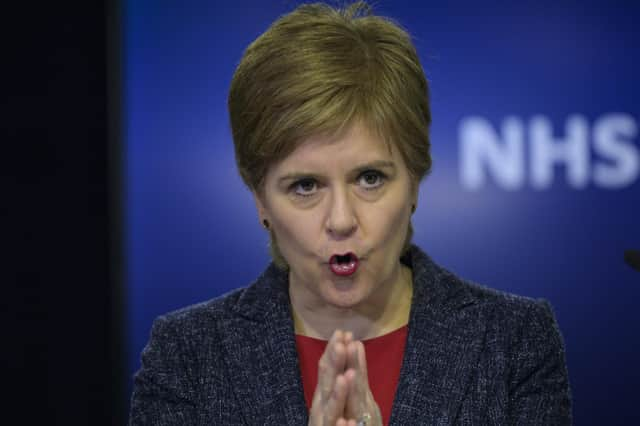UK Government to block Scottish gender recognition reforms


She hit out after Scottish Secretary Alister Jack confirmed he would make an order under Section 35 of the Scotland Act 1998.
It is the first time the UK Government has sought such an order, which will now prevent the Gender Recognition Reform (Scotland) Bill from going forward for royal assent, and the move will only further increase tension between the Scottish and UK governments.
Advertisement
Hide AdAdvertisement
Hide AdAnnouncing his decision Mr Jack said: “After thorough and careful consideration of all the relevant advice and the policy implications, I am concerned that this legislation would have an adverse impact on the operation of Great Britain-wide equalities legislation.”
He insisted this was the “necessary and correct course of action”.
But the Scottish First Minister in response tweeted: “This is a full-frontal attack on our democratically elected Scottish Parliament and its ability to make its own decisions on devolved matters.”
She pledged the Scottish Government would “defend the legislation and stand up for Scotland’s Parliament”.
Advertisement
Hide AdAdvertisement
Hide AdShe added: “If this Westminster veto succeeds, it will be first of many.”
Her comments came after Mr Jack had insisted the changes in the Scottish legislation could have an “adverse impact” on existing equalities laws.
But his decision comes just hours after Ms Sturgeon claimed if the UK Government moved to block the legislation it would be “unconscionable and indefensible and really quite disgraceful”.
She said she would “robustly and rigorously and with a very, very high degree of confidence” defend the Bill, which was passed by the Scottish Parliament last month.
Advertisement
Hide AdAdvertisement
Hide AdThe legislation sets out to simplify the process of obtaining a Gender Recognition certificate, and for the first time allows transgender people to obtain such a document without the need for a medical diagnosis.
It would also seek to speed up the process and reduce the age at which an application can be made to 16.